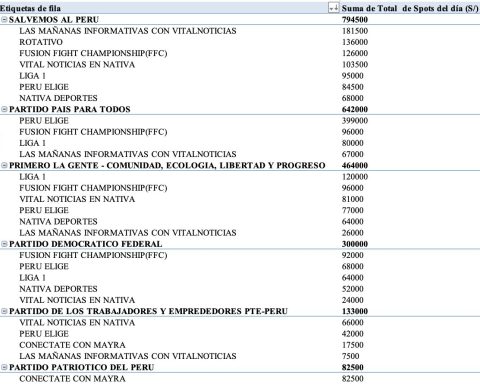According to Law of Gratuitiesemployers in the private sector have until July 15 to pay the bonus for national holidays to their workers.
“In the case of micro companies, workers do not receive bonuses; while in small companies the workers receive half remuneration or the corresponding amount with respect to the full months worked”explained Cinthya Snaiderman, specialist in Labor Law at the Arbe Abogados firm.
Likewise, employees of small businesses are entitled to receive the extraordinary bonus of 9% of the total amount of the bonus for contributions to the Social Health Insurance (Essalud) and 6.75% of the total amount of their bonus for workers affiliated with a Health Provider Companies (EPS).
LOOK: How much bonus should they deposit me for National Holidays
Are there discounts for small businesses?
The gratuity, as well as monthly remuneration, is subject to Income Tax by fifth category. On the other hand, collaborators who have some indebtedness by food mandate and according to what the judicial mandate indicates, they could be deducted up to a maximum of 60% of the bonus.
It should be noted that the worker can authorize discounts from his bonus for salary advances or any type of loan contracted with the company.
“If the collaborator wishes, he can ask his employer to deduct from his bonus any type of debt he has with him”added the expert.
Remote or hybrid work
Remote or hybrid work does not imply any discount in the payment of bonuses since, despite the fact that the worker is not working in person, he is carrying out effective work for the working time assigned by the company and on the established day.
LOOK: July bonus: how much will I receive if I did not work the entire semester
How are small business bonuses calculated?
Bonuses are calculated taking into account the following:
1. Days actually worked. Only the days actually worked should be taken into account; including vacation rest, paid leave and leave that originate the payment of some subsidy.
2. Amount of the gratuity. The amount of the bonus is equivalent to half a salary, as long as the worker has worked during the entire semester at the appropriate opportunity to deposit the benefit.
If the worker has worked less than a full semester, then he must be paid half a sixth of his remuneration for each month worked.
On the other hand, the worker has only worked one month, he also has access to the bonus and the amount he will receive will be equivalent to half a sixth of the computable remuneration for the month worked.
3. Define the computable remuneration. The computable remuneration is the basis for calculating the payment of the bonus.
Therefore, if the worker receives a fixed remuneration or if his salary includes variable concepts such as bonuses, commissions, among others, he must have received them for at least three months during the semester.

















